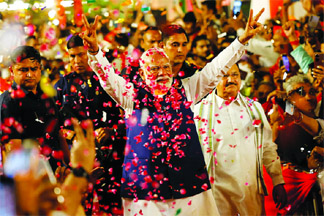
UNITED NATIONS (TIP): Having dithered for a couple of years now, the UN General Assembly , at last, on September 14, 2015, endorsed a document that will form the basis for negotiations on reforming the Security Council and allowing the stalled process to make progress. The step could facilitate realization of India‘s ambition for a permanent seat on the Security Council. But it may take quite some time, with all the ifs and buts which are inalienable part of international political chemistry.
The Assembly adopted a decision by Assembly President Sam Kahamba Kutesa that sets out a negotiating text for the Council reform and calls for continuing the negotiations in the next session in a process known as Intergovernmental Negotiations (IGN).
This marks a breakthrough in the long-stalled reform process because of a lack of negotiating text that can be the basis of discussions.
India’s Permanent Representative Asoke Kumar Mukerji, welcoming the Assembly’s endorsement by consensus of Kutesa’s decision, said this was the first time the body has adopted a substantive document on reforming the Council. He said that the reform process is now “irreversible” and the adoption of Kutesa’s decision has changed the dynamics of the Council reform process.
Mukerji said that Council reforms were essential if the Agenda 2030 development goals that are to be adopted at a global summit this month are to be reached because peace and stability were its pre-requisites and that can only be possible with an effective and representative Council.
Without a negotiating text so far, discussions on reforms had not been able to proceed realistically.
Kutesa circulated in July a negotiating text based on a survey of member states laying out the different proposals from over 120 member nations that responded to it. His decision adopted by the Assembly makes the negotiating text an integral part of continuing the negotiations on council reforms.
Some countries including Pakistan, China and Italy that had opposed the negotiating text joined in adopting Kutesa’ decision, but expressed reservations about the document and questioned whether it can be the negotiating document.





Be the first to comment